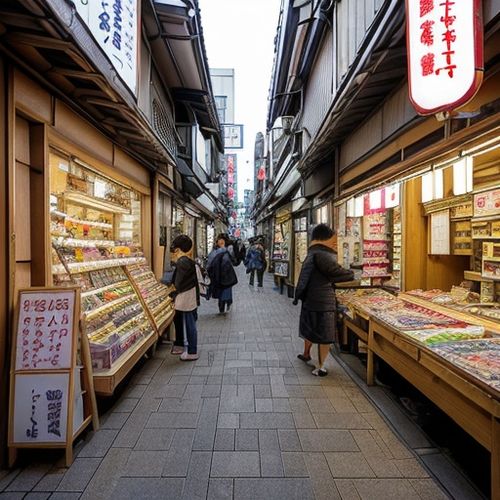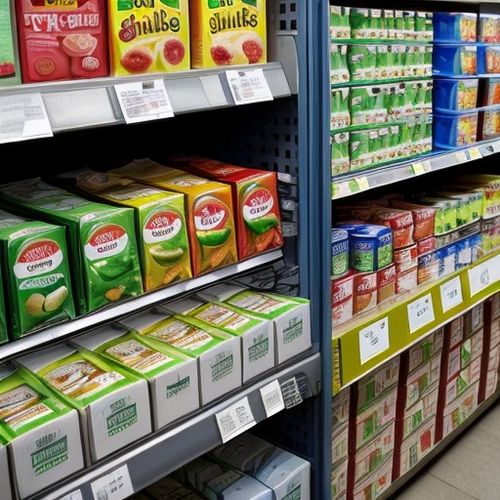In the labyrinth of Tokyo's backstreets, a retail revolution hides in plain sight. Japan's iconic 100-yen shops have long been tourist curiosities, but locals know these unassuming stores hold secrets that could transform your household budget. Beyond the obvious bargains lies a treasure trove of products performing double duty - ordinary items with extraordinary potential to replace expensive specialty goods.
The true magic of these emporiums lies not in their price tags, but in their cultural DNA. Japanese manufacturers have perfected the art of creating multifunctional products that maintain quality despite the razor-thin margins. Where Western dollar stores often peddle disposable junk, Japan's equivalent delivers surprising durability through clever engineering and material choices.
Consider the humble cleaning aisle. While supermarkets sell expensive mop systems with proprietary refills, savvy homemakers use 100-yen microfiber cloths as reusable mop heads. These ultra-absorbent rectangles outperform brand-name pads while costing 90% less. The same cloths transform into dusters when slipped over a backscratcher - an ingenious hack that eliminates the need for expensive extendable dusters.
Kitchen savings reach new heights when you explore the food storage section. The airtight silicone lids designed for bento boxes create perfect seals on bowls and cups, rendering plastic wrap obsolete. For coffee enthusiasts, the stainless steel mesh balls intended for tea brewing make exceptional permanent coffee filters, saving hundreds on paper filters annually while improving flavor extraction.
Beauty routines undergo similar transformations. The exfoliating gloves marketed for bath use become powerful makeup brush cleaners when paired with a drop of 100-yen dish soap. They remove product buildup more thoroughly than branded brush cleaners at a fraction of the cost. Even haircare gets revolutionized - the fine-tooth combs designed for lice removal make ideal scalp massagers that stimulate blood flow better than luxury salon tools.
Office organization sees dramatic cost reductions through creative substitutions. The magnetic spice racks intended for kitchens become brilliant tools for organizing paperclips, thumbtacks and other metal office supplies when mounted on filing cabinets. The small plastic drawers marketed for craft supplies transform into perfect desktop organizers that rival expensive modular systems from office supply chains.
Gardening enthusiasts discover particular value in the hardware section. The stainless steel mesh sheets sold as sink strainers become durable plant supports when cut to size, outlasting specialty garden center products at 10% of the price. Even the humble plastic food containers, when drilled with drainage holes, make superior seed starters compared to flimsy peat pots.
Pet owners find surprising solutions in unexpected places. The silicone ice cube trays become perfect portion controllers for wet pet food when frozen, while the small plastic baskets marketed for bathroom organization make ideal toy storage that pets can access easily. The real game-changer comes from using 100-yen knee pads as chew-resistant food bowl mats that keep feeding areas tidy.
Seasonal decorations take on new life through these shops. The LED tea lights designed for restaurants provide flameless ambiance at parties for pennies compared to specialty event lighting. The fabric remnant bins yield perfect material for handmade decorations that cost less than premade equivalents while allowing complete creative control.
Perhaps most surprisingly, even tech accessories find worthy substitutes. The cable organizers intended for earphones work equally well for managing charging cords and USB cables. The small plastic cases sold for pill storage become perfect organizers for SD cards, USB drives and other tiny tech accessories that constantly get lost.
The psychology behind these substitutions reveals why they work so well. Japanese product designers focus intensely on core functionality rather than superficial branding. A 100-yen vegetable peeler works identically to its department store counterpart because both must meet Japan's exacting manufacturing standards - only the packaging and perceived status differ.
Adopting this mindset requires breaking free from Western consumer habits that equate price with quality. The true savings emerge not just from individual product swaps, but from developing an entirely new approach to consumption. When you begin seeing household items through the lens of their fundamental capabilities rather than their marketed purposes, the potential for savings becomes limitless.
These shops also teach valuable lessons about sustainability. Many 100-yen products were designed during Japan's periods of resource scarcity, forcing engineers to create items that maximize utility while minimizing waste. This heritage makes them particularly suited for today's eco-conscious consumers looking to reduce their environmental footprint without sacrificing convenience.
The next time you pass a 100-yen shop, look beyond the surface. Within those crowded aisles lies not just a collection of cheap goods, but an entire philosophy of intelligent consumption waiting to transform how you outfit your home, office and life. The real bargain isn't any single product - it's the mindset shift that could save you thousands while decluttering both your space and your budget.

By Sophia Lewis/Apr 11, 2025

By Joshua Howard/Apr 11, 2025

By Grace Cox/Apr 11, 2025

By George Bailey/Apr 11, 2025

By Samuel Cooper/Apr 11, 2025

By Sophia Lewis/Apr 11, 2025

By Megan Clark/Apr 11, 2025

By Lily Simpson/Apr 11, 2025

By Samuel Cooper/Apr 11, 2025

By Noah Bell/Apr 11, 2025

By Ryan Martin/Apr 11, 2025

By John Smith/Apr 11, 2025

By James Moore/Apr 11, 2025

By Lily Simpson/Apr 11, 2025

By Thomas Roberts/Apr 11, 2025

By Jessica Lee/Apr 11, 2025

By William Miller/Apr 11, 2025

By Elizabeth Taylor/Apr 11, 2025

By Christopher Harris/Apr 11, 2025

By Eric Ward/Apr 11, 2025